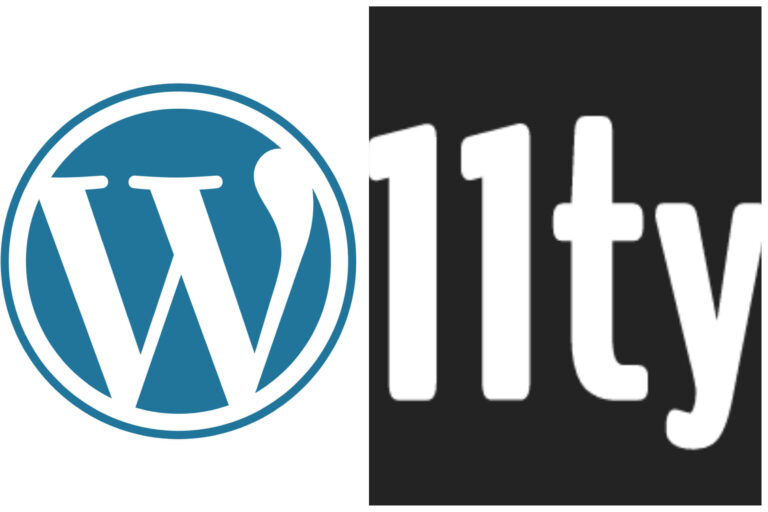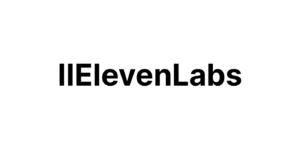WordPress vs 11ty: Which is better?

If you are caught in the WordPress vs 11ty debate, you are not alone. The increasing popularity of static sites is challenging WordPress’s dominance of the website development market and webmasters are noticing.
Eleventy or 11ty, is a static site generator just like Gatsby and Jekyll. But unlike Jekyll that runs on Ruby, 11ty runs on Node.js, a JavaScript engine. And unlike Gatsby with its complexity, 11ty keeps it simple.
11ty makes it as easy as possible to create a JAMstack site and this comes with enough advantages to make any WordPress admin want to switch.
The question, however, remains if the switch to 11ty will be worth it, especially when all you need is a simple blog. This post compares the two platforms to help you decide.
WordPress vs 11ty comparison table
| WordPress | 11ty | |
|---|---|---|
| Underlying technology: | PHP, MySQL | Node.js |
| Type of page generated: | Dynamic | Static |
| Page speed & SEO: | Average | Best |
| Customization options: | Best | Average |
| Security concerns & hackability: | Average | Best |
| Running cost: | Low | Lower |
| User Interface & Templates: | Better | Average |
| CMS Options: | WYSIWYG | Plain text |
Underlying Technology
Back in the 1980s and 90s, websites were mainly static, but server-side scripting using PHP and other tools came along and the dynamic website was born. This gave rise to platforms such as Drupal and WordPress and productivity exploded.
But today, things are going the other way round, as sites are migrating to JAMstack (JavaScrip, APIs, and Markup stack). These new environments are often cloud-based and server-less. All you need is a simple HTML server to deliver your site’s static pages to visitors.
So, while you will need a PHP and MySQL server, with an HTTP server like Apache to run a WordPress installation, all you need to run an 11ty site is an HTML server.
Of course, you will also need the 11ty site generator, including a working Node.js engine, but that should be on your development machine or laptop. It is not part of the server environment.
Type of Page Generated
WordPress generates dynamic pages while 11ty generates static pages. With dynamic pages, all the available information about a specific web request is pulled from the database, processed, and delivered to the requester – the site visitor’s web browser.
11ty generates static pages, are pre-rendered and stored on a publicly accessible folder on the website. This makes the pages easy to serve to the requester, but it also makes all pages similar. So, there is no customization, as is possible with dynamic pages.
Blog posts, for instance, are mostly static content because they are authored once and viewed by all readers. Comments on the post and their replies, on the other hand, are dynamic. You would need an external service like Disqus to achieve the same WordPress comment features on a static site.
Page speed & SEO
11ty is, without doubt, the winner here because static sites load much faster than dynamic platforms like WordPress. There are no calculations to compute, no databases to query, and nothing to format.
Every page on a static website is ready to be served. This is especially important because page-load speed is an important SEO metric and ranking factor.
Customization Options
WordPress ranks better than 11ty when it comes to customization because of its large and thriving community, which has provided all the plugins you will ever need.
Besides, these plugins are easier to use than what you will get from a static site generator such as 11ty. Just point and click, as the configurations are mostly mouse-based, a luxury you won’t get with 11ty.
If you have the technical know-how, though, or if you can hire an 11ty expert, then there is no limit to what you can create with the platform.
Security concerns and hackability
WordPress sites receive an astonishing amount of brute-force and other hack attacks every day. The simple reason being that there is a server on the other end, which is receiving and processing commands over the web.
With a purely static website, there is no server to process login commands. So, there is theoretically no way a malicious hacker can gain access to the system. In truth, there is no system to gain access to.
Of course, there will always be a certain amount of risk when you are running a website on the Internet. Still, a standard Eleventy website is a thousand times more hacker-secure than a standard WordPress site.
Running Costs
Dynamic websites can use huge resources if you are getting loads of web traffic. Many WordPress plugins such as WP-Rocket and W3 Total Cache try to solve this problem by caching the server’s output.
Caching means storing a static version of frequently requested pages and serving it for some time without PHP or MySQL execution. This reduces the page-load times and overall server running costs.
With a static website, however, you get even better performance than cached WordPress pages.
User Interface and Templates
The WordPress community provides a nearly infinite supply of themes and plugins, ranging from free to premium. This makes it very easy to get a nice-looking website up and running in no time.
11ty on the other hand offers a very flexible approach to customization. You can either use Markdown, HTML, JavaScript, Liquid, Haml, Mustache, or Nunjucks in developing your template, or you can use them all together in one file.
This is a very powerful approach with lots of future potentials. But for the moment, there’s just not enough pre-designed templates or themes to compete with WordPress.
CMS Options
WordPress also beats 11ty when it comes to managing website content. As with most static site generators, 11ty stores each page’s raw content as plain text in a given directory, from where the final build takes place.
This can be on your local machine or the web, for instance, GitHub. The content creator also needs a knowledge of Markdown, Liquid, or other template languages to create a well-formatted blog post, for instance. So, compared to WordPress with its WYSIWYG editor, 11ty is less user-friendly.
Conclusion
We have reached the end of this WordPress vs 11ty comparison and as you can see, these are two different tools for different types of people.
WordPress is for everyone, including coders and non-coders alike, while 11ty is for coders or JavaScript devs, at the very least.
You can build most website types with the two platforms. But WordPress is better for simple blogs and general sites with minimum investment, while 11ty is better for highly optimized sites with a dedicated developer.





